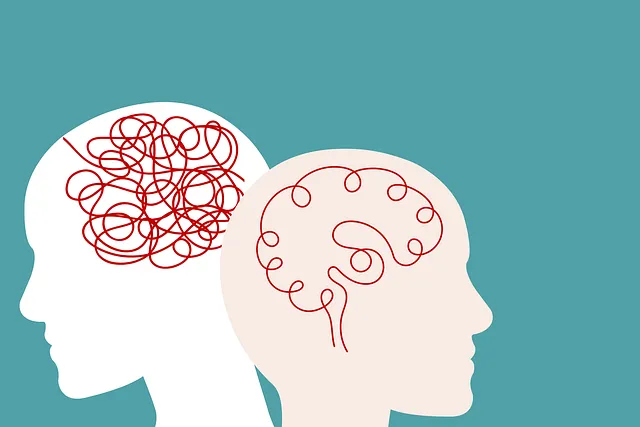Kaiser Permanente mental health Longmont prioritizes culturally sensitive care through tailored interventions that respect diverse patient backgrounds and values. By integrating self-care practices aligned with individual cultural identities, they enhance well-being, prevent depression, and foster meaningful recovery experiences. This approach, featuring emotional well-being promotion and multilingual resources, significantly improves mental health outcomes by bridging communication gaps and building resilience among patients from various ethnic, racial, and socioeconomic groups.
Cultural sensitivity is a cornerstone of effective mental healthcare, ensuring equitable access to quality services for all. This article explores this vital aspect within the context of modern healthcare practices, using Kaiser Permanente as a case study. We delve into their approach to cultural competence and examine strategies like those implemented in Longmont, Colorado. Additionally, we discuss the benefits and challenges of culturally sensitive mental health care, highlighting its transformative impact on diverse communities.
- Understanding Cultural Sensitivity in Mental Healthcare
- Kaiser Permanente's Approach to Cultural Competence
- Strategies for Incorporating Cultural Sensitivity in Practice (Longmont Focus)
- Benefits and Challenges of Culturally Sensitive Mental Health Care
Understanding Cultural Sensitivity in Mental Healthcare

Cultural sensitivity is a critical aspect of mental healthcare practice, ensuring that services are accessible, effective, and respectful to individuals from diverse backgrounds. It involves understanding and appreciating the unique cultural values, beliefs, and traditions that shape an individual’s experience with mental health issues. At Kaiser Permanente mental health Longmont, we recognize that a one-size-fits-all approach rarely works in addressing complex psychological concerns. Therefore, our team is dedicated to incorporating cultural sensitivity into every aspect of care.
This commitment translates into tailored interventions and support systems that consider not just the symptoms but also the broader social and cultural context of each patient. For instance, integrating self-care practices and self-awareness exercises that resonate with a person’s cultural identity can significantly enhance their journey towards mental well-being. By taking such approaches, we aim to not only prevent depression but also foster meaningful recovery experiences that are deeply rooted in the individual’s sense of self within their specific cultural framework.
Kaiser Permanente's Approach to Cultural Competence

Kaiser Permanente, a renowned healthcare organization, has been at the forefront of promoting cultural sensitivity in mental health services, particularly in its Longmont location. They recognize that providing culturally competent care is essential for addressing the unique needs of diverse patient populations. Their approach revolves around fostering an environment where compassion and understanding are cultivated, ensuring every individual feels respected and heard.
By incorporating techniques such as emotional well-being promotion and anxiety relief strategies, Kaiser Permanente’s mental health professionals create a safe space for patients from various cultural backgrounds. These practices not only aid in building trust but also facilitate effective communication, allowing for more personalized treatment plans. The organization’s commitment to cultural competence is evident in their efforts to bridge the gap between healthcare providers and patients from different ethnic, racial, and socioeconomic groups, ultimately enhancing overall mental health outcomes.
Strategies for Incorporating Cultural Sensitivity in Practice (Longmont Focus)

Incorporating cultural sensitivity into mental healthcare practice is a multifaceted approach that requires continuous learning and adaptation. At Kaiser Permanente mental health Longmont, we focus on understanding and respecting diverse cultural beliefs, values, and practices to ensure equitable care. One key strategy involves actively listening to and validating patients’ experiences, allowing them to express their perspectives freely. Additionally, providing multilingual resources and staff members who can bridge communication gaps enhances accessibility and comfort for a broader patient base.
Resilience building is another crucial component. By incorporating mental illness stigma reduction efforts and stress management workshops organized by our dedicated team, we foster an environment that promotes healing and empowerment. These initiatives not only support patients’ emotional well-being but also strengthen their ability to navigate life’s challenges with enhanced coping mechanisms. Such personalized approaches contribute to the holistic improvement of our patient population, reflecting our commitment to culturally sensitive mental healthcare services in Longmont.
Benefits and Challenges of Culturally Sensitive Mental Health Care

Cultural sensitivity in mental healthcare is a vital approach that enhances the quality of care provided to a diverse range of patients, particularly those within communities like Longmont served by Kaiser Permanente mental health services. By embracing cultural sensitivity, healthcare providers can create a more inclusive environment, fostering better patient-provider relationships and improved outcomes. This involves understanding and appreciating the unique cultural beliefs, values, and practices of individual patients, which can significantly impact their mental health experiences and preferences for care.
One of the key benefits is enhanced empathy building strategies that allow mental health professionals to tailor their approaches, ensuring that treatment aligns with cultural expectations and norms. This personalized approach not only improves patient engagement but also facilitates a deeper understanding of the individual’s experience, leading to more effective interventions. Moreover, culturally sensitive practices can contribute to better self-esteem improvement by respecting patients’ identities and promoting a sense of belonging, which is crucial for fostering trust and encouraging open communication about mental health concerns. However, challenges remain, such as ensuring adequate training in cultural competency, staying updated on diverse cultural practices, and navigating potential language barriers, all while delivering evidence-based care within organizations like Kaiser Permanente.
Cultural sensitivity in mental healthcare is not just a best practice but an imperative, as evidenced by Kaiser Permanente’s successful implementation of cultural competence. By adopting strategies like those highlighted for Longmont practices, we can enhance patient outcomes and improve access to care for diverse communities. While challenges exist, the benefits of culturally sensitive mental health care—including increased trust, improved engagement, and better treatment adherence—outweigh any obstacles. Embracing this approach is crucial in fostering inclusive and effective healthcare environments that resonate with every individual, regardless of their cultural background.






